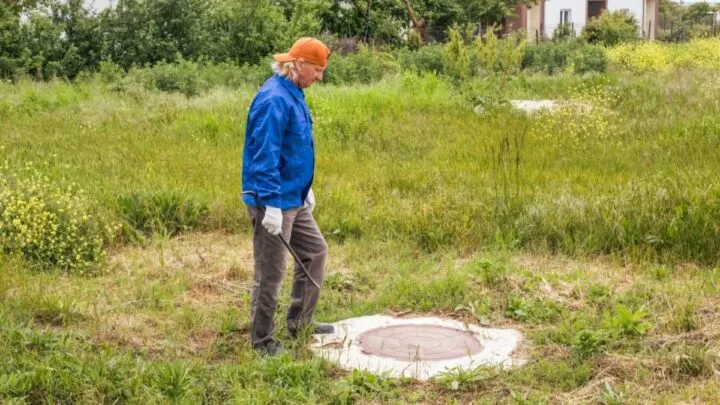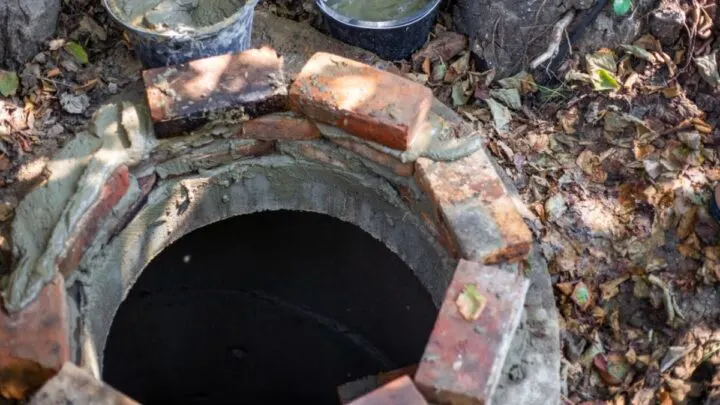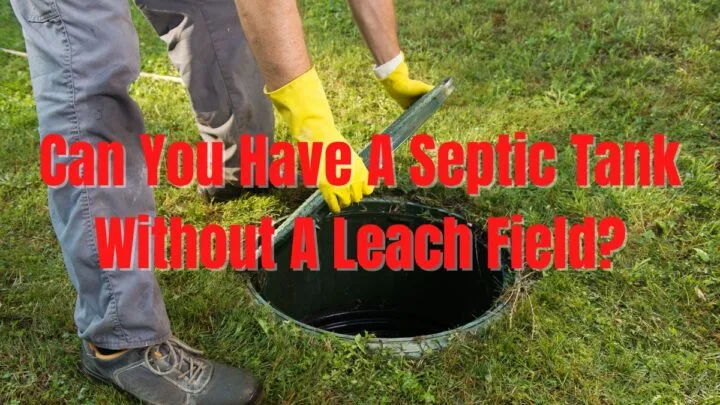Many homeowners with a septic waste disposal system have complained about how much space a leach field can take up their land.
This leads to one common question – is it possible to have a septic tank without a leach field?
You cannot have a septic tank without a leach field, as the leach field is an integral part of the functioning of the tank. However, you do have some options as to what kind of leach field and septic system you can install.
Below, we’ve explained in detail how the septic system works, why the leach field is important, and in what circumstances you can potentially make do without it.
How Does A Septic System Work?
A septic waste system is an on-site structure that can treat and disperse household waste. It is an underground system, meaning the waste is treated and then the clean water returns to the water cycle.
It involves a combination of chemical and natural processes to treat both solid and liquid waste from your home.
Drain pipes from all over your house collect and dump the waste into the septic tank.
The waste is divided into three layers; the bottom layer of solid waste, the middle layer of effluent or liquid waste, and the topmost layer of oil and grease. Each layer is targeted and treated differently.
So, where does the leach field come in? The leach field comprises drain networks or perforated pipes that help distribute wastewater evenly within the septic tank.
The septic tank does not treat the wastewater fully, which is why the leach field is needed to complete this process.
As the water needs to be fully treated before re-entering the water cycle, the leach field is an essential component of the septic system.

Why Can’t You Have A Septic Tank Without A Leach Field?
If you use a septic system without a leach field, you will have to manually pump your septic tank regularly every month.
Aside from the labor involved, the cost of pumping will also heavily weigh on your utility budget, and it’s therefore much more convenient to have a leach field installed in the first place.
Some Exceptional Cases
Although many septic systems cannot operate without a leach field, there are some circumstances in which homeowners may be forced to make do without one.
We’ve discussed some of these exceptional situations below.
1. Old Septic Systems
If you find yourself buying an old farmhouse or property well over 100 years old, chances are the land has an old septic system installed.
Septic systems which are this old typically do not have a leach field, and wastewater from the house would directly flow into a nearby stream or water body.
While this worked just fine in the olden days, this form of waste disposal is considered highly unethical and environmentally damaging in modern times.
You will most likely have to update your septic system to keep up with today’s legal requirements and safety guidelines. Thus, although old septic systems without leach fields can be found, they are not ideal in the present time and will have to be updated.
2. Land With Shallow Water Tables
If your septic system needs to be built over land with shallow bedrock or water tables, you might have to install it without a leach field. This is because, typically, wastewater entering the soil from the leach pipes has enough time in the soil for the microbes to treat it.
If the water table is too shallow, the wastewater will not be fully treated by the time it reaches it, which can lead to the groundwater becoming severely contaminated.
Thus, you might have to install a septic system without a leach field in these circumstances.
3. Nearby Water Body
If your land has a nearby water body with wildlife and plants that are susceptible to water pollution, installing a septic tank without a leach field is more environmentally conscious.
In this scenario, the wastewater from the leach field can reach the water body without being fully treated and thus contaminate the water.
What Are Some Alternatives?
While most septic tank systems will be installed with a leach field, there are certain situations where the leach field can become a problem.
Thus if there is a lack of space, a nearby water body, or land with shallow water tables, you might have to do without a leach field, or find an alternative to one.
In these scenarios, your best option is to install a waste disposal system other than the conventional septic system.
Some alternatives you can consider include:
Recirculating Sand Filter System
Although this system can be a bit more expensive to install and maintain compared to septic systems, it is more efficient and is a great alternative if you can’t have a leach field.
It purifies wastewater so that it can pass directly into the soil without going through a leach field.
A recirculating sand filter system is your best bet for waste disposal in areas with sensitive ecosystems, shallow water tables, or nearby water bodies.
Evapotranspiration System
Another alternative to the septic tank is an evapotranspiration system. While it has a drain field as part of its components, this drain field is not like the leach field in a septic tank.
The base of the field is lined with a thick waterproof material, which prevents wastewater from entering the soil. When it does make contact with the field, it evaporates and does not merge with any groundwater.
The evapotranspiration system is also more costly than a septic tank and requires a special atmosphere to work properly.
But if your land is suitable for such a system, it can be a more efficient and eco-friendly alternative to a septic tank without a leach field.

The Bottom Line to Installing a Septic Tank Without a Leach Field
If you wish to stick to a conventional septic tank system, then a leach field is an essential component you cannot do without.
If you choose not to install one, you will be forced to either pump your tank regularly or consider some alternatives to the septic system.
Evapotranspiration or a circulating sand system can be your best option in such circumstances.


